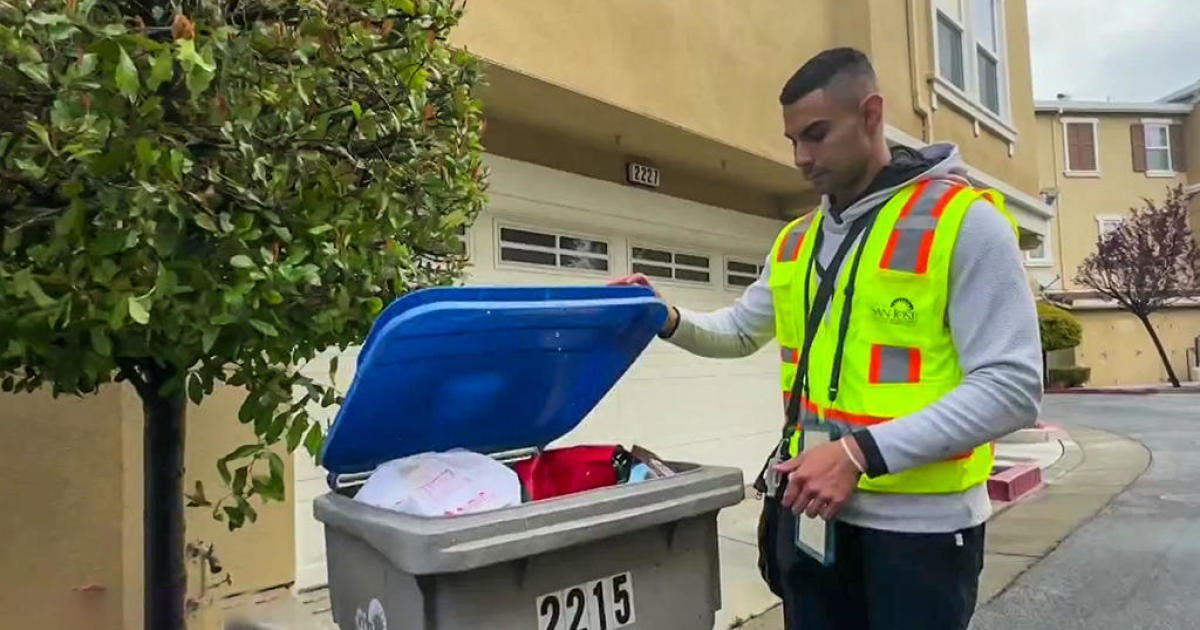Bay Area Scientists Join Forces To Help Contain Zika Virus
SAN FRANCISCO (CBS SF) -- Experts say get ready: the Zika virus is coming to the United States.
And while there is no vaccine or cure, there is some good news.
Rival teams of scientists are joining forces for the public good.
Spread with just a bite from an infected mosquito or through sex, the notorious Zika virus may be more dangerous than we imagined. Just ask some Bay Area scientists.
"This mosquito-borne virus is spreading at an incredible rate," said Professor Eva Harris of the University of California at Berkeley.
"We're playing catch up with Zika," explained Professor Mark Kunitomi of the University of California at San Francisco.
"You know as a father, I'm scared," admitted Jonas Korlach of Pacific Biosciences, a Menlo Park-based biotechnology company.
The medical literature is revealing startling information about the virus. Doctors have detected fetal problems in roughly 30 percent of pregnant women infected with Zika.
A second report newly published in The Lancet details four Zika-related fatalities in Colombia: In a two-year-old, as well as in three adults. All died from acute infections, with internal bleeding.
A man in Puerto Rico died over the weekend. Officials at the Center For Disease Control and Prevention say he too died of internal bleeding, caused by a rare immune response to the virus.
Every day, scientists are learning something new about it.
"The thing with Zika is that we essentially know nothing," explained Harris.
Now Bay Area scientists have joined forces to fight the virus and the major mosquito known to carry it. Armed with knowledge that accrues rapidly, they hope to help devise a better diagnostic test, a possible anti-viral, and treatments, a vaccine, even a way to manipulate the mosquitoes so that they don't bite humans.
One good reason for the collaboration? The virus is not going to stay put in Latin America or the Caribbean.
"We have many of the same mosquitoes and we're going to have the same problems here," explained Harris.
"We all want to produce something that's very helpful to people," said Kunitomi.
Korlach noted, "It's absolutely critical and I'm really happy to see the community working together."
Korlach, the chief science officer at Pacific Biosciences, said his company has pioneered a new sequencing technology. It's produced a state-of-the-art DNA map of the mosquito that carries Zika.
The genetic blueprint may reveal the clues on how to defeat the virus.
"It's very important to attack this from as many angles as we can," said Korlach.
Pacific Biosciences collaborated with UCSF scientists, who in turn are sharing the results with researchers nationwide. The group is named after the mosquito that is known to carry Zika: The Aedes Genome Working Group.
At UCSF Mission Bay, scientists are carefully studying the actual Zika virus.
Kunitomi is a post-doctoral scholar who is doing research on virology, molecular biology, and the viruses emitted by mosquitoes. He wants to understand why Zika spares the mosquito but not humans.
"Understanding that could be critical in controlling the virus or controlling the insect," he explained.
The actual Zika virus from the current outbreak is also under intense scrutiny at UC Berkeley.
At UC Berkeley, in a secure lab, they are attacking the culprit on many different fronts. This is the domain of Eva Harris. Harris is a professor in the division of infectious disease and vaccinology within the School of Public Health and she is a world-renown dengue researcher. Her team is now tackling Zika. She has researchers in her lab at UC Berkeley, and roughly 100 on the ground in Nicaragua.
She is looking at how the virus invades a pregnant woman's placenta to harm the fetus. She is doing this research in collaboration with researchers at UCSF. The hope: to block the virus.
"We actually have the new viruses from this current epidemic infecting the different cell types in the placenta, and being able to understand which cells are most infected and then, most importantly, how we can prevent that infection," said Harris.
Time is of the essence.
"We're going to be in quite a fight," noted Korlach.
Experts believe we won't see a pandemic or widespread transmission of the virus in the United States, but there may be localized outbreaks.
There are ways you can protect yourself.
The CDC website has the latest information on what you should do to protect yourself and your family.



